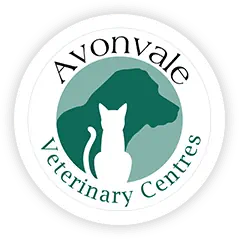Travel sickness is fairly common in young puppies, and usually improves rapidly as the puppy matures. In some cases, it can persist into adulthood, becoming a major problem which forces owners to avoid taking the dog out in the car, or to rely on sedatives to prevent sickness when travelling is unavoidable.
Most puppies soon become accustomed to travelling, but sometimes a dog will come to associate the car with the unpleasant feeling of nausea, resulting in anxiety and reluctance to get into the vehicle. Some poor travellers start to salivate as soon as it becomes clear that a car journey is intended, indicating feelings of sickness prompted just by the prospect of travelling, even before the engine starts. This cycle of expectation needs to be broken if the dog is to recover and become a happy traveller.
THE PUPPY:
Little and often is the secret with car sick puppies. Keep to very short journeys that finish before the point at which the puppy starts to become queasy, and keep the puppy on the floor of the car rather than the seat to reduce the sight of things moving past the car. The journey should ideally lead to something pleasant, such as a walk in the park* or a meal - driving 50 yards along the road and back before every meal often helps the puppy develop a positive attitude to travelling. Journeys can be increased very gradually as the puppy's tolerance increases.
THE ADULT DOG:
Travel sickness in adult dogs, as stated above, tends to be partly a learned response, and the unpleasant associations the dog may have with the car need to be broken.
1. Develop a positive association with the car - with the car stationary and the engine switched off, encourage the dog to jump in and out happily by:
- feeding him in the car, initially with the door open then with it closed as he gains confidence, and by
- playing with him in and around the car - have the car doors open and throw a toy through for him to fetch, then throw it into the car so he fetches it from inside. This game can be extended to hiding a toy in the car for him to find using his nose, and the same can be done with tasty titbits.
2. Gradually get the dog used to doing all the above with the engine running. Start by switching on the engine while he is eating his food and switching off again immediately. Increase this to running the engine for the whole time that he is eating, then encourage him to jump into the car for his food while the engine is running. Games can then begin, as above, with the
engine running
3. The next step is to encourage the dog to jump into the car, move the car just a few feet, then give him his food with lots of fuss and praise, allowing him out of the car straight afterwards. (At this stage, it may be helpful in some instances to use a drug which suppresses vomiting without sedating the dog, so that there is no chance of him feeling sick when the car starts to move for the first few times - however, if this stage is done very gradually this should not usually be necessary). Increase the distance travelled VERY gradually,
a few feet more each time, rewarding with his meal after each short "journey".
4. As the dog's tolerance improves, start taking him for short journeys culminating in something exciting such as a run in the park*, or a visit to friends, so that each journey ends with something rewarding. The prospect of something exciting should overcome the sickness, and the dog will gradually start to enjoy travelling in the car.
*WARNING: If a trip in the car is always followed by something rewarding, especially something exciting such as a walk, some dogs may become over excited, noisy and uncontrollable. To avoid this, as soon as the travel sickness problem has been overcome, make a point of taking the dog regularly on plenty of boring journeys; to do the shopping, the school run etc, where he learns to settle quietly in the car at the end of the journey.
Dog Appeasing Pheromones (D.A.P)
These are available as a room diffuser or spray which can be used on the pet’s bedding or in the car.
Although undetectable by the human nose, they use synthetically produced pheromones which replicate those from the bitch when nursing her puppies and can reduce anxiety in adult dogs. They can be useful in all situations where dogs feel stressed and may alleviate travel sickness.
More information and D.A.P. products are available from the surgery.





